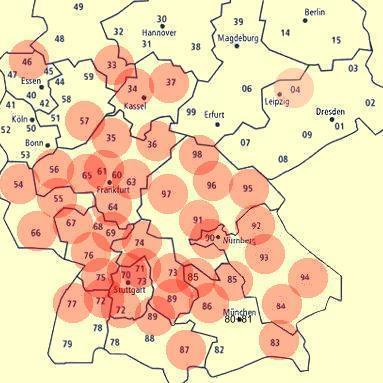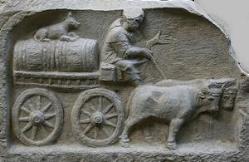- Originaltext: ein Acker bei der Gänseweide.
- Wohl von lat. gens, gentes, sagt aus, dass der Acker einer Patrizier-Familie gehörte
- Quelle: Wikipedia
Unter den patrizischen gentes gab es zwei Kategorien, die gentes maiores und die gentes minores. Die maiores waren die führenden Familien Roms: die Aemilier, Claudier, Cornelier, Fabier und Valerier, die aus dieser Stellung heraus besondere Privilegien religiöser und weltlicher Art für sich reklamierten.
Im weiteren Sinne bezeichnet das Wort gens aber auch einen Volksstamm oder ein Volk - und wurde in diesem Zusammenhang Bestandteil des Begriffs Ius gentium, Völkerrecht.
- Quelle WWW: In whatever country like England or France you will look to the explanation of the word "Ministerialen", as reader you will see that these people are classified under the lower nobility. In England and France they called this class Gentry or Gens de Arms, literally arms bearing families or Armiger. People who had the right to bear arms, also the right to carry a coat of arms and who were the helping hands of power under a Knight. We also see the proof in the predicate that this Gentry were allowed to use behind their name, namely "Esq." with the meaning of Esquir
 Vorkommen:
Vorkommen:
gens gentes = Sippe Familie Volk Geschlecht
- Querverweis: Siehe Anlistung aller
 Gens, Gäns etc. unter Ortsnamen
Gens, Gäns etc. unter Ortsnamen
